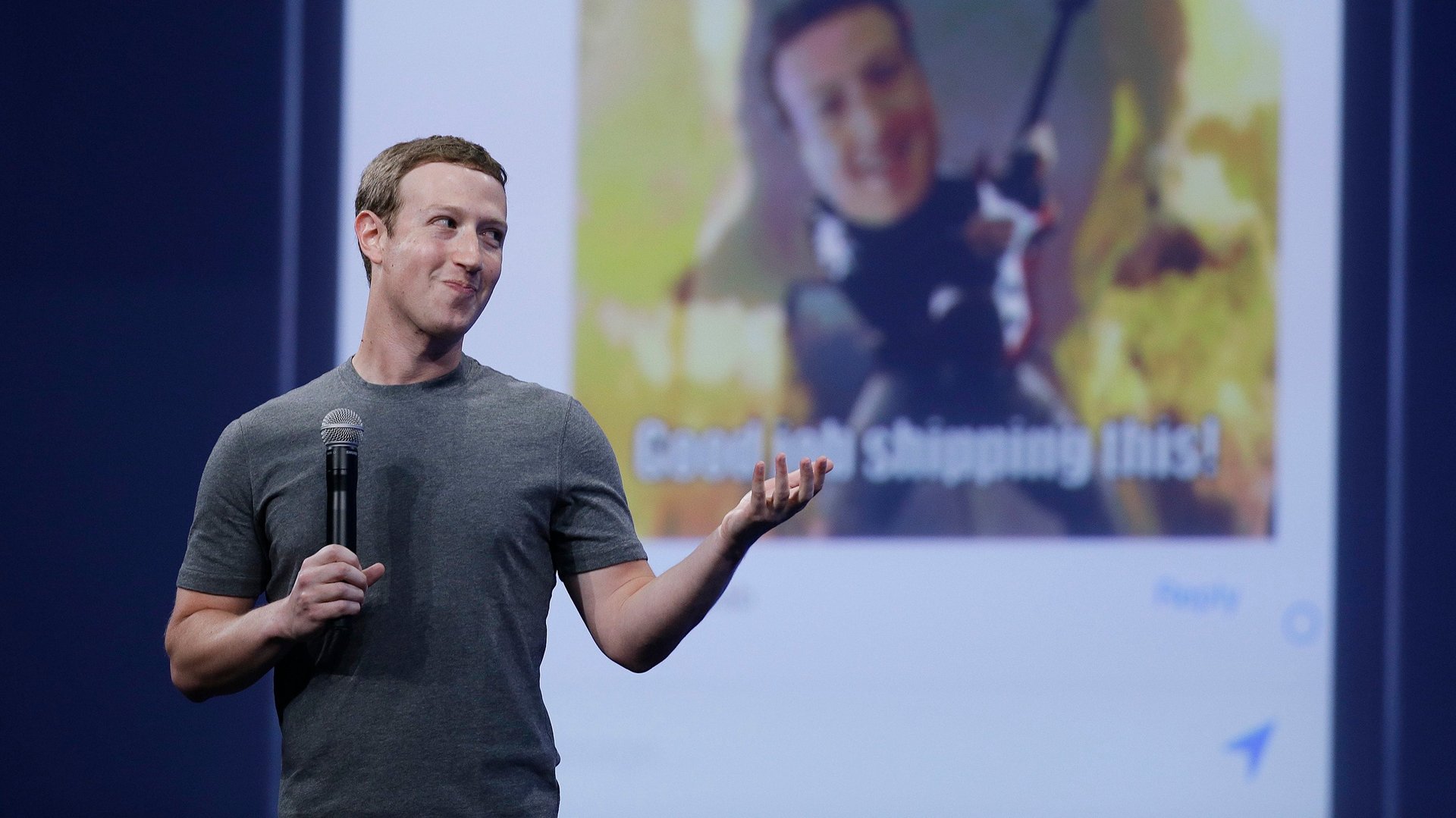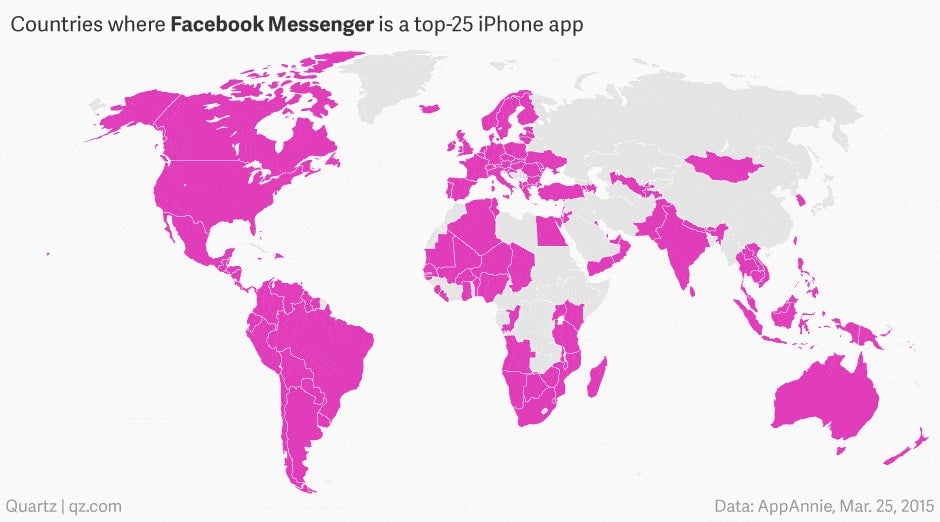Facebook is building an incredible moat around the future of social with Messenger and WhatsApp
Facebook, which thoroughly dominates the current era of the online social networking industry, is setting itself up nicely for the next.


Facebook, which thoroughly dominates the current era of the online social networking industry, is setting itself up nicely for the next.
Many see messaging apps as the future of social: Lightweight, real-time, personal conversations that can become rich environments for media sharing, entertainment, and even commerce. Facebook is in a particularly luxurious position here.
It now owns the two largest messaging services in the world: No. 1, WhatsApp, which last said it had 700 million monthly active users, and was acquired by Facebook for more than $20 billion. And no. 2, its homegrown Facebook Messenger, which now has 600 million monthly active users.
What’s interesting is how the apps are starting to diverge: Two similar concepts with increasingly different feature sets, philosophies, and strengths.
Facebook’s plans for Messenger are ambitious and complex. At the firm’s F8 developer conference last week, it announced a new Messenger “platform.” Companies can build their services directly into Messenger, ceding some control to Facebook in exchange for (theoretically) massive distribution. The idea is similar to the old Facebook web platform from last decade, which fueled the growth of companies like Zynga, the gaming giant behind FarmVille, and Zong, an early Facebook mobile payments partner, whose founder David Marcus is now running Messenger for Facebook after a stint at PayPal.
Most early examples from the Facebook Messenger platform simply add media to messaging. For example, an ESPN app for Facebook Messenger allows you to send “sports GIFs to make your friends LOL.” Giphy, the “world’s largest GIF search engine,” adds support for fun animations. (Earlier this month, Facebook also added a feature that lets its Messenger users send each other money.)
But it’s easy to see how something like this could expand. It’s long been happening in Asia, where services like WeChat—500 million monthly active users, but mostly in China—offer a variety of services from taxi booking to financial services. Similarly, mobile games—notably missing from Facebook Messenger, so far—have propelled Japan’s most popular messaging app, Line, which has also struggled to catch on globally. Perhaps we can expect more along those lines from Messenger, which already has broad global impact.

Speaking of broad global impact, what about WhatsApp? Where’s its platform?
That’s not happening now, and it doesn’t sound like one is coming any time soon. While Facebook Messenger plays the platform game, WhatsApp—the most popular messaging app in the world—is keeping its product simple and focused.
A WhatsApp rep told Quartz that the company—which still runs independently, at an arm’s length from Facebook—is focused on app speed and reliability. And this isn’t a crazy idea, either. WhatsApp gained massive popularity—and drew Facebook’s acquisition offer—by offering people a fast, free alternative to text messaging. A recent chart from the Economist shows how WhatsApp dramatically zoomed past SMS—the global messaging standard—in message traffic. Why mess up a good thing?
That’s not to say that Facebook is impervious. Snapchat is perhaps the best recent example: An “ephemeral” mobile photo-messaging service with a rough user interface that just happened to take off. Now Snapchat is one of the fastest growing social networks in the world—run by a tycoon who shares some traits with a young Mark Zuckerberg—and is becoming a compelling player in mobile video. Facebook couldn’t buy Snapchat quickly enough, and has failed at cloning its magic several times. YikYak, a gossip app popular on college campuses, is also worth keeping an eye on.
Still, Facebook has positioned itself impressively. Instead of one attempt to keep its hold over the future of social, Facebook can try two separate strategies with massive audiences.